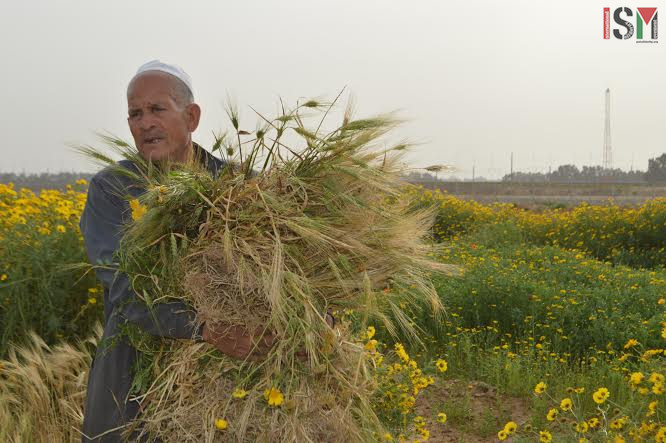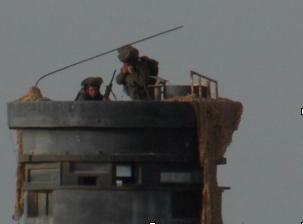Category: Journals
-
Journal: Khuza’a, the farm life
31st March | Rina Andolini | Khuza’a, Occupied Palestine This is what conversations in Gaza consist of: I asked, “When they are shooting, what’s the best thing to do?” “Get down on the ground,” he answered, “and move away quick as you can.” It was a stupid question; I knew the answer. I guess I was hoping for a response that would…
-
In Gaza the farmers irrigate the land with their blood
18th March 2015 | Valeria Cortés | Khuza’a, Gaza, Occupied Palestine Tilling the land in Gaza is one of the most dangerous jobs in the world. The Zionist Occupation Forces fire on the peasants and their families while they sow or harvest their own land near the infamous Zionist fence which surrounds Gaza. They also burn their…
-
Extremist settlers hurls abuse at injured ISM activist
26th December | Ally Cohen – originally posted on Mondoweiss | Hebron, Occupied Palestine Hebron, Palestine, December 24th. As we made our way to ‘checkpoint watch’ we were discussing what it would be like that morning, would there be tear gas? Stun grenades? Child arrests? Every day children are forced to walk through military checkpoints, manned with armed…



